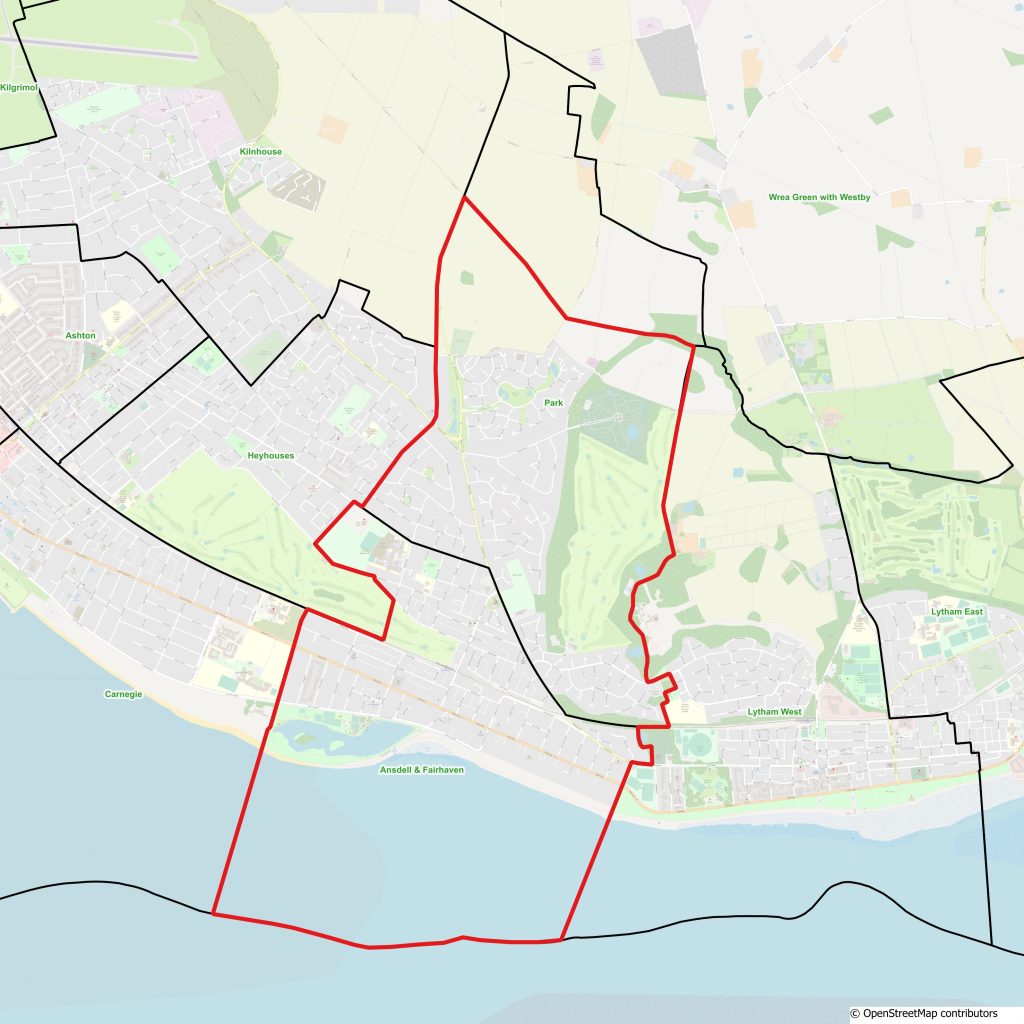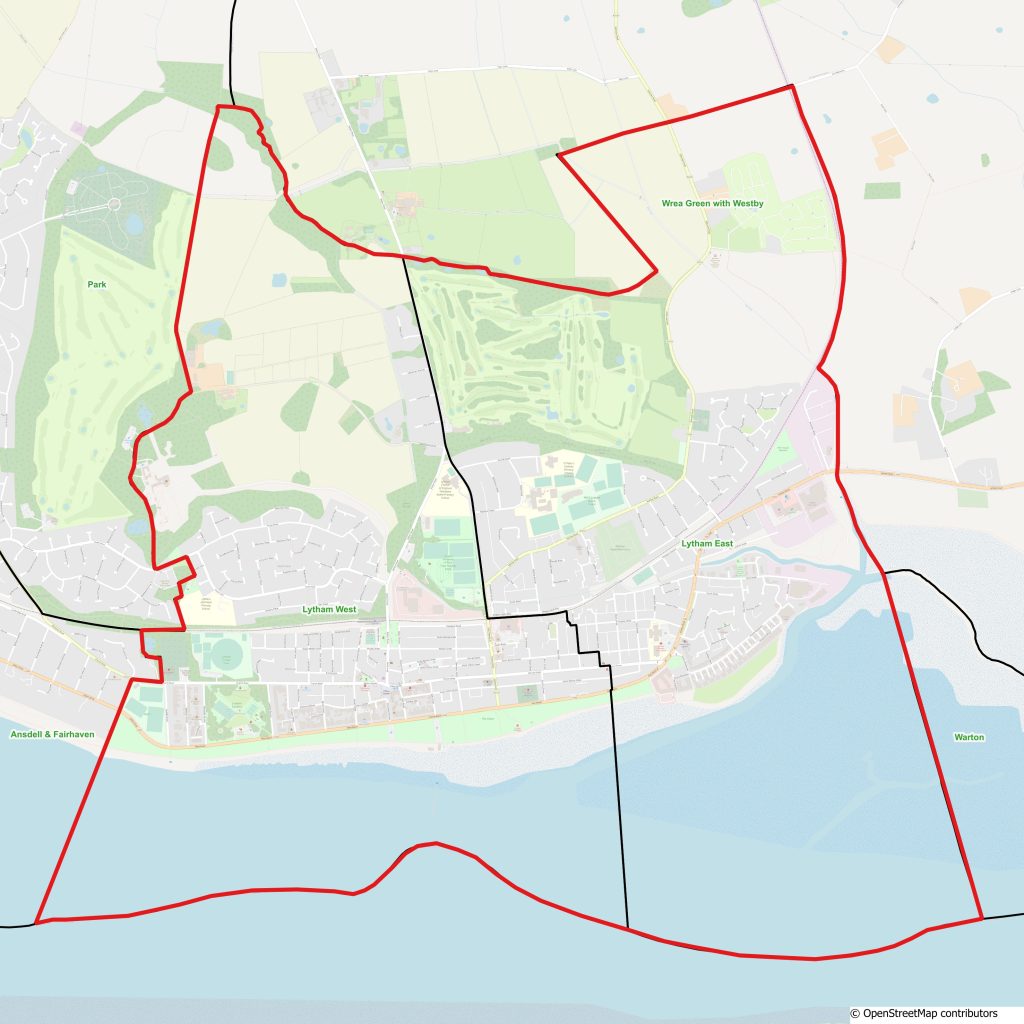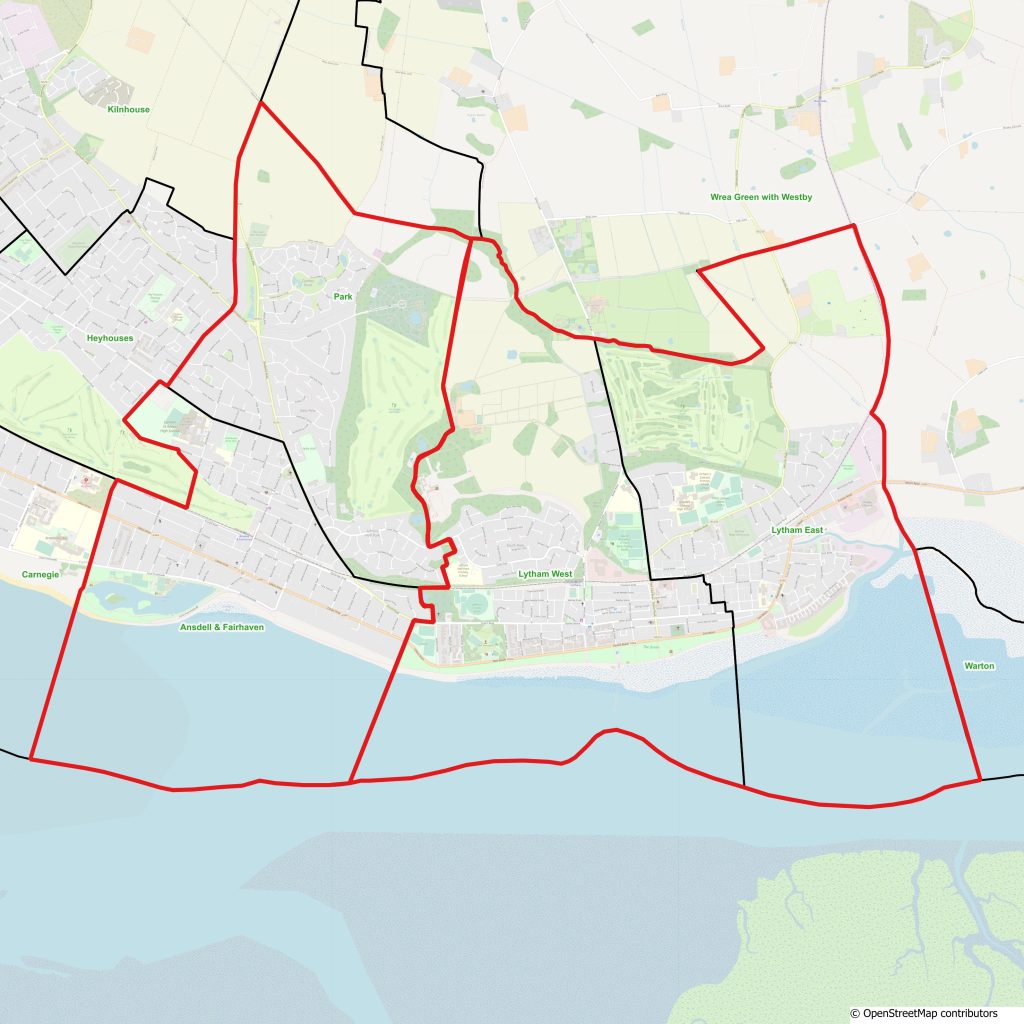Parish councils are the first tier of government – they are at the heart of many communities, giving neighbourhoods a voice and can help people feel more involved in decisions which affect them, and aims to take localism to the next level by giving people a democratic voice that goes beyond just voting in elections. Most of the population in Fylde is already covered by parish councils and this consultation seeks views on whether the remaining areas of Ansdell and Lytham should also have parish councils.
Fylde Council reviewed existing parishes, together with the unparished areas, across the borough in early 2022 through a process called a Community Governance Review. Following on from this, we want to know what you think about proposals to establish parish councils across Ansdell and Lytham, covering the borough wards of Lytham East, Lytham West, Ansdell and Fairhaven, and most of Park. Or alternatively if you think a parish council covering both areas should be established.
Why should I get involved?
This consultation is important as it could result in new parish councils. Your feedback and views will help shape our decision-making about this.
Please spare 5 minutes to complete the consultation survey and tell us what you think.
Alternatively:
- Email comments to democracy@fylde.gov.uk
- Write to Parish Review, Fylde Council, Town Hall, St Annes Road West, Lytham St Annes FY8 1LW
- Request paper copies from the Town Hall, Ansdell Library or Lytham Library
The deadline to complete this consultation is Tuesday 23rd April 2024.
You can also get involved by visiting us at pop up events taking place within the community. These events will take place in both Ansdell and Lytham on the following dates:
- Lytham Library/Assembly Rooms between 1:30 pm to 4:30 pm on Friday 22nd March
- Ansdell Library between 10:30 am to 1:30 pm on Tuesday 26th March
- Lytham Square between 11:30 am to 2:30 pm on Saturday 6th April
- Ansdell outside the Co-Op store between 11:30 am and 2:30 pm on Saturday 13th April
FAQs
The survey is aimed at residents living in the boundary areas Ansdell & Fairhaven, Park, Lytham East, and Lytham West. Locally based community groups and businesses are also invited to participate. As part of completing the survey we will verify your postcode to ensure that you are within the boundary area.
People in Ansdell and Lytham are proud of their local area. Local groups work to preserve and maintain the built environment and heritage. Other community groups in both Ansdell and Lytham have engaged and energised the local community to provide better facilities within parks. Campaign groups have mobilised the local population in opposition to development proposals that have been perceived as threatening the character of the area.
Despite the successes and commitment of local groups without parish councils there is no permanent, democratically accountable voice that represents the specific interests of the localities. This stands in contrast with the rest of the borough, including St Annes. This could be perceived as putting Lytham and Ansdell at a disadvantage in terms of representation. Separate parish councils for both Ansdell and Lytham, or a combined parish council for both areas, could better represent the interests of the locality and provide a focus for community activities in these localities.
A new parish council for Ansdell would cover the borough council ward of Ansdell & Fairhaven and nearly all of the borough council ward of Park. The area covered is shown on the image below, outlined in red.

A new parish council for Lytham would cover the borough council wards of Lytham West and Lytham East. The area covered is shown on the image below, outlined in red.

A new combined parish council for Ansdell and Lytham would cover the borough council wards of Lytham East, Lytham West, Ansdell & Fairhaven and nearly all of the borough council ward of Park. The area covered is shown on the image below, outlined in red.

A parish council has the power to raise money through taxation. The money for the parish council is collected as part of council tax, but it is up to the parish councillors how much money they raise. The parish council element of a council tax bill is usually relatively small compared with other authorities like the county council or the fire authority. In Fylde the existing parish council’s charges range between c£21 and c£104 per annum per Band D property, with the average charge for 2024/25 being c£67 for a Band D property. It is estimated that the charge from the new parish council/councils in Ansdell and Lytham if they were to be established could be in the region of c£40 to c£50 per Band D property in the first year of operation. This would appear as an additional charge on council tax bills in the areas where new parish councils were created. But the exact amount will depend on the decisions that the parish council takes each year. Following the first year it would be up to the new parish council to set the amount payable which could be greater or lesser than the amount indicated above.
The precepts for the town and parish councils across Fylde for 2024/25 are set out below for illustrative purposes.
Town and Parish Councils – Calculation of Precept for 2024/2025
| Actual Total Precept Level for 2024/25 (£) | Band D Per Property Town & Parish Precept amounts (£) | |
|---|---|---|
| Bryning-with-Warton | 160,494 | 86.66 |
| Elswick | 38,280 | 78.44 |
| Freckleton | 110,544 | 54.11 |
| Greenhalgh-with-Thistleton | 11,249 | 55.97 |
| Kirkham | 258,277 | 104.48 |
| Little Eccleston-with-Larbreck | 20,000 | 77.22 |
| Medlar-with-Wesham | 71,563 | 49.49 |
| Newton-with-Clifton | 81,250 | 65.63 |
| Ribby-with-Wrea | 70,413 | 67.64 |
| Singleton | 24,356 | 53.18 |
| Staining | 87,505 | 97.88 |
| Saint Annes on the Sea | 395,118 | 37.03 |
| Treales, Roseacre & Wharles | 13,985 | 57.79 |
| Weeton-with-Preese | 27,471 | 94.40 |
| Westby-with-Plumton | 17,866 | 20.63 |
There are currently no specific proposals to transfer of any powers/responsibilities from Fylde Council to any new parish council. Any potential changes to council tax levels would be a matter for the Councillors at each relevant Council to determine each year.
The costs and council tax charges will be a matter for the Councillors at any relevant new Council to determine each year. As an indication, the following list (copy attached) shows how much each of the existing Town and Parish Council in Fylde increased their charges to residents for the current financial year 2024/25 compared to 2023/24:
| % Change in Band D amount 2023/24 to 2024/25 | |
|---|---|
| Bryning-with-Warton | 0.0% |
| Elswick | 4.2% - Increase |
| Freckleton | 2.2% - Increase |
| Greenhalgh-with-Thistleton | 17.5% - Increase |
| Kirkham | 9.2% - Increase |
| Little Eccleston-with-Larbreck | 8.6% - Increase |
| Medler-with-Wesham | 0.0% |
| Newton-with-Clifton | 0.0% |
| Ribby-with-Wrea | 0.0% |
| Singleton | 3.0% - Increase |
| Staining | 8.2% - Increase |
| St Annes | 49.7% - Increase |
| Treales, Roseacre & Wharles | 4.9% - Increase |
| Weeton-with-Preese | 12.8% - Increase |
| Westby-with-Plumpton | 0.0% |
Locally elected councillors would make-up the membership of the parish council. These councillors would be selected through a local election.
Yes, councillors will be elected initially for a two-year term, and then each four years after that.
Generally, parish councillors in Fylde do not receive payment. While allowances can be offered by parish councils, currently none in Fylde pay an allowance. Any allowance, if granted, must align with recommendations from an independent panel.
While political parties can field candidates, most parish councillors in Fylde are independent of party affiliations. The selection of councillors ultimately rests with the electorate.
Yes, eligibility for parish councillor positions requires they live within the parish or within three miles of its boundaries, or employment within the parish.
Parish councils complement rather than replace other levels of local government. Parish councils work towards improving community well-being and providing better services. Their activities fall into three main categories: representing the local community; delivering services to meet local needs; striving to improve quality of life and community well-being. Through an extensive range of discretionary powers local councils provide and maintain a variety of important and visible local services including allotments, bridleways, burial grounds, bus shelters, car parks, commons and open spaces, community transport schemes, community safety and crime reduction measures, events and festivals, footpaths, leisure and sports facilities, litter bins, public toilets, planning, street cleaning and lighting, tourism activities, traffic calming measures, village greens and youth projects.
A parish council cannot overrule the borough council but can provide a powerful local democratic voice for its community.
Information on other Town and Parish Councils in Fylde
What is a Parish/Town Council?
A parish council is a local authority that makes decisions on behalf of the people in the parish and has an overall responsibility for the well-being of its local community. It is the level government closest to the community, in effect at its ‘grass roots’, with the district authority above it in the hierarchy. As it is the authority closest to the people, parish councils are often the first-place people often go with concerns or ideas. For this reason, they are a vital part of their community.
Its work falls into three main categories:
- representing the local community
- delivering services to meet local needs
- striving to improve quality of life in the parish
How does a parish council fit within the broader scheme of local government?
There are three tiers of local government in the borough of Fylde:
- Lancashire County Council
- Fylde Council
- Fifteen existing Town and Parish Council as follows:
- Bryning-with-Warton Parish Council
- Elswick Parish Council
- Freckleton Parish Council
- Greenhalgh-with-Thistleton Parish Council
- Kirkham Town Council
- Little Eccleston-with-Larbreck Parish Council
- Medlar-with-Wesham Town Council
- Newton-with-Clifton Parsh Council
- Ribby-with Wrea Parish Council
- Saint Annes on the Sea Town Council
- Singleton Parish Council
- Staining Parish Council
- Treales, Roseacre & Wharles Parish Council
- Weeton-with-Preese Parish Council
- Westby-with Plumptons Parish Council
- What would a parish council do?
Parish councils have a wide range of powers which essentially related to local matters. These can include:
- looking after community buildings
- open space management and maintenance
- allotment provisions
- play areas
- street lighting
- bus shelters
- car parks and much more
The parish council would also be consulted on local planning applications and its views considered by Fylde Council who determines applications. However, parish councils do not have statutory responsibilities relating to social care, education, highways or fixing roads, managing planning and licensing functions and waste collection as examples. These services will continue to be provided by Fylde Council together with Lancashire County Council.
Like any local authority, a parish council is a democratic institution. Parish councillors are chosen by local people in elections. It would be up to the parish councillors, when they have been elected, to decide how the parish council would exercise its powers.





